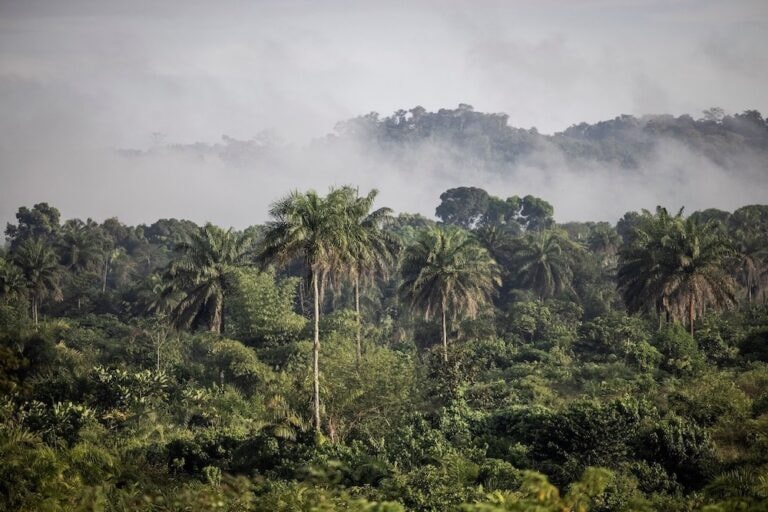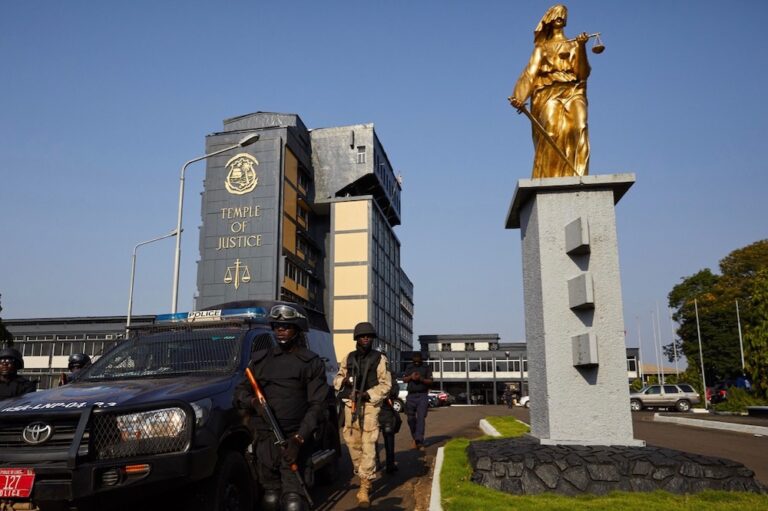(CEMESP/IFEX) – The following is an abridged version of a 22 January 2009 CEMESP press release: CEMESP Launches Account of Free Expression Attacks in Liberia in 2008 Monrovia, January 22, 2009 – The Center for Media Studies and Peace Building (CEMESP) has today launched its annual publication on attacks on freedom of expression in Liberia. […]
(CEMESP/IFEX) – The following is an abridged version of a 22 January 2009 CEMESP press release:
CEMESP Launches Account of Free Expression Attacks in Liberia in 2008
Monrovia, January 22, 2009 – The Center for Media Studies and Peace Building (CEMESP) has today launched its annual publication on attacks on freedom of expression in Liberia.
The 2009 publication, entitled “The Triumph of Impunity: Account of Attacks on Freedom of Expression in Liberia – 2008,” draws attention to various actions by individuals, civil society and especially government actors against the media and other citizens and residents as they tried to take advantage of the universally guaranteed right to free speech.
In announcing the publication, CEMESP Executive Director Malcolm Joseph proclaimed that “Triumphantly, impunity is stealing into Liberian politics, society and government” and called for public and government actions to prevent this adversary of the rule of law.
Joseph noted that the democracy that Liberia seeks cannot be achieved if Liberians are not encouraged to freely express themselves on the issues that inform and affect their government and general livelihood.
Recalling President Ellen Johnson Sirleaf’s vow to ensure a fundamental departure from the past of lawlessness and insecurity, the CEMESP director said this departure can only materialise if and when government officials and other functionaries consider, like United States Justice Hugo L. Black (1886-1971), that “only a free and unrestrained press can effectively expose deception in government.”
Among other things, the publication highlights threats of media closure by the Ministry of Information, one actual closure and eventual seizure of a media outlet by a local government official, as well as the barring of journalists from a public function.
The report also described three incidents where people were imprisoned for expressing their opinions, including two journalists for taking photographs and an anti-war crimes activist who was illegally detained because he wanted to petition the visiting US president.
In reference to the triumph of impunity that is threatening freedom of expression, Joseph noted that too often nothing is done when people act against the media or others for expressing themselves.
According to Joseph, “violence . . . also took a toll on freedom of expression, as police beat up some journalists, while security force members brutalised others at various locations.”
In addition to reports of threats to freedom of expression, the publication also includes commentaries by various actors in the Liberian media scene about issues that are meant to fuel the public’s interest and belief in support of freedom of expression. CEMESP believes that these comments will serve as further education to those who believe in the right of all people to freely express themselves, and as an inspiration to those who have not previously considered the validity of this right.
CEMESP argued that by presenting the stark details, and providing background information about freedom of expression, readers and the public would understand this campaign and hopefully join in.
Joseph ended his comments by expressing optimism that the government and other actors would take action against those abusing and attacking the press, and ensure that they do not continue with impunity.


